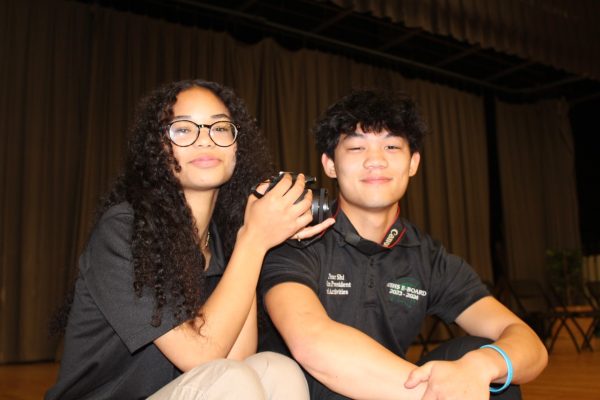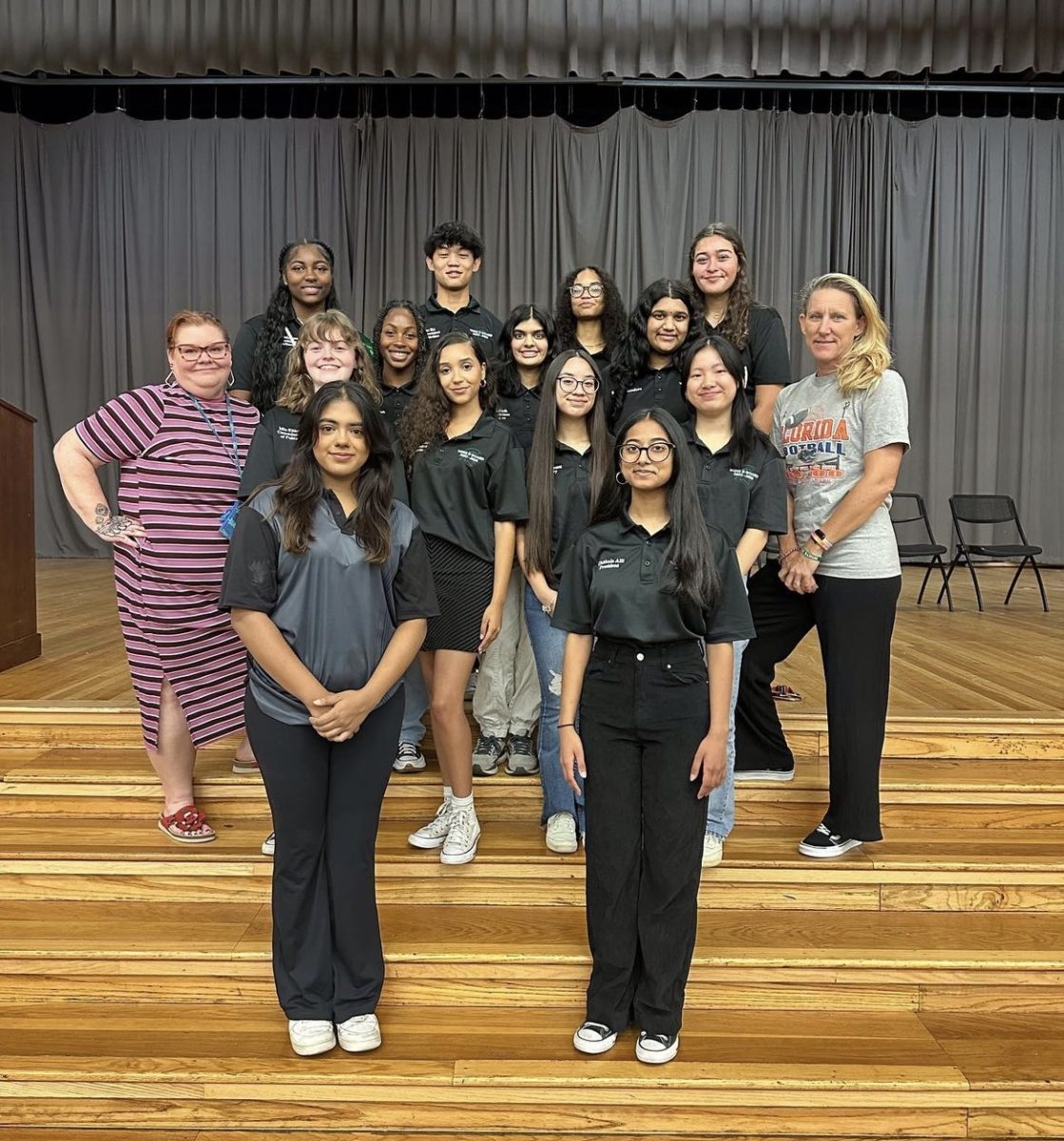Student government at White Station is designed to connect the student body to administration and event planning through a representative system. The two student government bodies are the Executive Board (E-Board) and Student Council. E-Board plans many of the school’s largest annual events and submits student requests to administration for approval. Student Council executes most of the events planned by E-Board through volunteering.
“Eboard is the executive board at our school, so it’s kind of the bridge between students and administration, but not in terms of like student voices speaking on issues,” E-Board president Shivani Menon (12) said. “It’s more of the events at our school.”
Applications for E-Board open up in April each year to elect members for the following school year. Applicants prepare a speech or video presentation for the position they are interested in which is presented at the Nominating Convention. After the presentations, members of E-Board and eligible student council members vote for candidates to fill every spot on E-Board.
“[Student Council members] have a say in who gets elected to E-Board along with people who are already in E-Board, so it really allows people to be equal and it allows them to have a say as well in our school opportunities and community,” E-Board Vice President of Logistics London Haines (11) said.
Unlike E-board, anyone who signs up to be a part of Student Council can participate. Student Council work centers around volunteering as the manpower behind events that E-Board plans. They track member participation through a point system, and members who have participated a certain amount throughout the year are invited to vote at the elections for E-Board.
“Student Council is basically an opportunity for students to participate in school activities and events,” Haines said. “So we gather and we have meetings about what’s going on at our school and we ask what changes we want to make or what ideas we have so that the student body is heard.”
The structure of E-Board is a hierarchy with two co-presidents at the top followed by two Vice Presidents of Logistics and two Vice Presidents of Activities. The Commissioners of Welfare run campaigns and the biannual blood drive. The Commissioners of Publicity spread the word about events that E-Board plans through announcements and social media accounts. The secretary takes notes during all meetings, records attendance and holds the contact information for all E-Board members. Additionally, the treasurer plans spirit night fundraisers and designs and orders merchandise for Student Council and E-Board.
“The president is the one that’s making sure there’s an agenda [and sets the agenda] along with the secretaries,” Menon said. “Just like any club president would do … They’re making sure that the people underneath them on their executive board are holding up to their responsibilities and duties of their position, and then they’re making sure that everything is organized and good to go.”
The Vice Presidents of Logistics run class elections and student council meetings. These members chair all community service projects and organize the E-Board Nominating Convention and freshman orientation. The Vice Presidents of Activities are in charge of homecoming assemblies and pep rallies along with assisting in planning freshman orientation.
“Everyone on E-board has a specific role for specific events that happen throughout the year,” Menon said. “[W]e’re considered the bridge between students and administration, but in reality, we’re just like the party planning, like all the events that happen is what E-board does which is why we give a lot more stuff to class officers for them to take charge and do everything.”

There are two Members at Large: one for underclassmen and one for upperclassmen. Members at Large take on responsibilities that other roles need extra help with. Unlike other members of E-Board, they are chosen after the Nominating Convention through a separate application.
“Members at Large will help each grade and help them set up their activities … or anything they want to do [that goes] through administration first before they plan it,” Menon said. “So it’s kind of [like] they help out everyone else and they’re also really in charge of the class officers as well.”
Class officers are directly elected by their grade every year. Each grade has two class officers to represent them at E-Board meetings and advocate for their interests. Class officers provide input on ideas, have a vote in the proceedings and plan projects and activities for their grade.
“[Class officers] obviously do help out with all of the E-Board activities, but their main priority is making sure they are planning events for their grade,” Menon said. “They have a mandatory service learning project for their grade. And like any things that they want to address from their grade in the E-Board meetings so we can tell administration, that’s their role as well.”
E-Board meetings are much more frequent than the monthly student council meetings. Every Monday after school, E-Board and the class officers assemble to plan upcoming events and carry out their roles. The co-presidents set the agenda and initiate a round table style presentation where members can chime in with their perspectives and what they have been working on.
“[At meetings], each position will give an update of what they have [done] and if it’s like something that we had to talk about. [The] last meeting was class distinction [dress up days] because we got a lot of negative feedback on [the] college [theme],” Menon said. “[F]or each position we kind of talk about like what their assignments are and we have it on the board presented and then any other comments are said towards the end.”
The best way to create change at White Station as a student is through participation. E-Board has After Action Reviews (AAR) in order to discuss how to improve events and cater to student needs. Filling out feedback forms, talking directly to class officers and supporting initiatives and events helps student government representatives understand what the student body is looking for.
“I would just love to see that the student body try to become more involved and supportive,” longtime previous sponsor Kemm Browne said. “[T]hings take time to change but they don’t change if you don’t come in and get involved and try.”




































